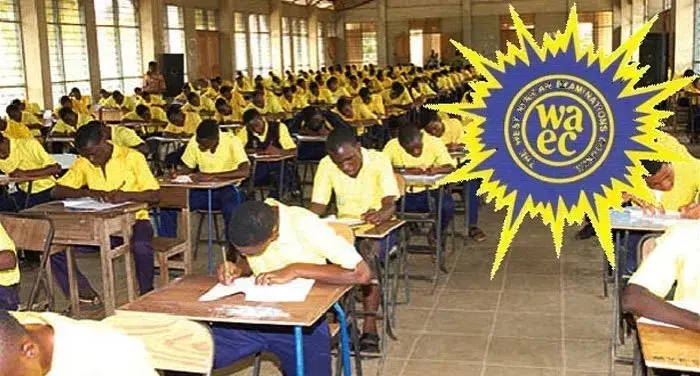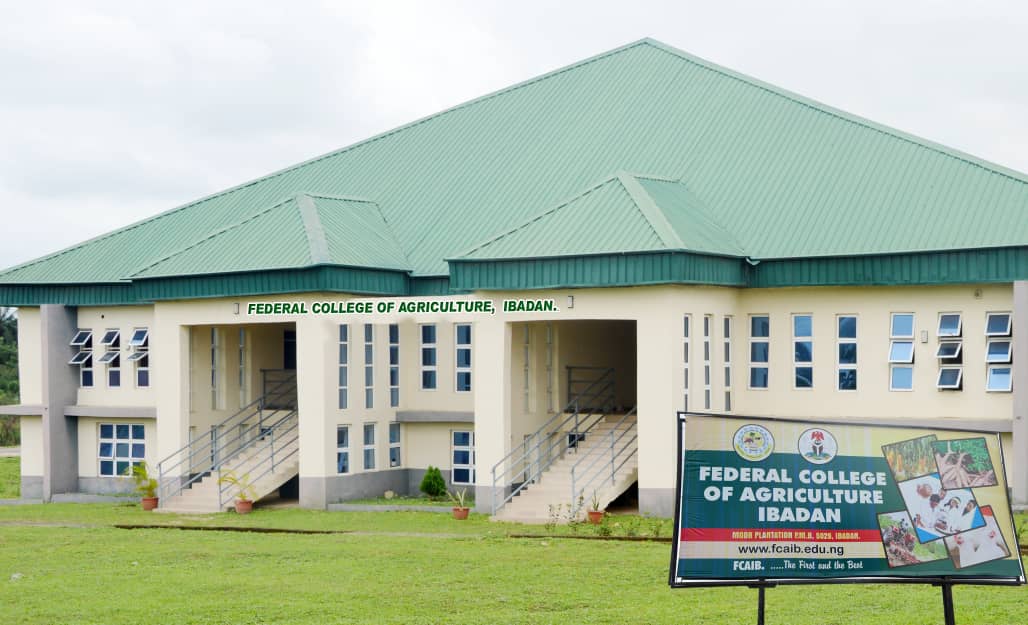Education
Fury as FG pegs age for writing WASSCE at 18 years

Fury as FG pegs age for writing WASSCE at 18 years
Critical stakeholders in the education sector have condemned the decision of the Federal Government to peg the age at which students can write the Senior Secondary School Certificate Examinations, SSCE, at 18, saying it will simply draw the sector back.
The groups reacted to the comment by the Minister of Education, Professor Tahir Mamman, that from 2025, any candidate, who is not up to 18 will not be allowed to write the examination and without doing so, such candidate won’t be able to seek admission into tertiary institutions.
The stakeholders, who spoke with Vanguard yesterday, included the Nigeria Union of Teachers, NUT, the National Parents/ Teachers Association of Nigeria, NAPTAN, the Congress of University Academics, CONUA, the Academic Staff Union of Universities ASUU and a member of a non-governmental organisation, Concerned Parents and Educators Network, CPE.
FG’s position
Mamman, who spoke on a television programme on Sunday night dropped the hint about the new policy.
Nigeria operates the 6–3–3–4 system where a child enrols in school at age six for six years each of primary and secondary education.
At the end of secondary school, a Nigerian is expected to be about 18 years old, but many students often graduate at 16 or less due to skipped grades.
In July, the Ministry of Education introduced a policy setting age 18 as the minimum age for tertiary institution admissions.
It, however, made an exception for the 2024 admission cycle which it said will accept candidates as young as age 16.
Mamman said such under-aged students will no longer be allowed to write the SSCE.
The Education Minister was asked whether the status quo for the minimum age of admission into higher institutions was 16 or 18.
“It is 18 (years). What we did at the meeting that we had with JAMB was to allow underage candidates this year and for it to serve as a kind of notice for parents.
“JAMB will admit students who are below that age, but from next year, JAMB is going to insist that anybody applying to go to university in Nigeria meets the required age which is 18,” the Education Minister clarified
Mamman said the policy of minimum age for tertiary school admission was not newly initiated by President Bola Tinubu’s administration.
“This is a policy that has been there for a long time. If you compute the number of years pupils and learners are supposed to be in school, the number you will end up with is 17 and a half.
“In any case, NECO and WAEC, henceforth, will not be allowing under-age children to write their examinations.
“In other words, if somebody has not spent the requisite number of years in that particular level of study, WAEC and NECO will not allow them to write the examination,” he said
Asked what the minimum age to write SSCE would be, the minister responded: “It is not a matter of age. It is the years spent at each level of education.”
The minister, who said pupils were expected to spend five years in early child care, said they would be six in primary one and complete primary school education at age 12.
He reiterated that the junior and senior secondary school levels together were for six years, blaming parents for “pressuring” their children and wards into embracing educational pursuits which they were too young to understand.
The minister said his position is in line with the 6-3-3-4 educational policy of the federal government.
On the face of it, the minister is right as 18 years is the age of maturity or adulthood under the Constitution, and the university environment and academic content are tailor-made for mature minds.
It will draw back education – NUT Reacting to the issue yesterday, the Secretary General of the NUT, Dr Mike Ene, expressed disappointment at the development.
According to him, the government’s declaration will simply negatively affect the education sector.
“One good thing about our minister is that he is a lecturer and also a Senior Advocate of Nigeria. One hopes the policy will stand the test of time. They should have another look at the policy.
‘’They cannot just wake up and make such a decision. They must consult widely on it. I am a member of the National Council on Education, NCE, and we held a meeting in Lagos early this year I am not sure such a matter was discussed. It is decisions taken at such a meeting that should be pursued.
“The NCE comprises the ministers, commissioners for education in all states, the NUT, bodies such as WAEC, NECO, JAMB, UBEC and others. If that is done, what will become of gifted children?. Yes, in our days, people start school at six years, but we still had those who left secondary school before 18.
“Now that our children start early, say by three years they are in creche, singing nursery rhymes, after that, they move on. So, they complete secondary school education before 18, some a little over 16. What will such students be doing? Devil finds work for an idle hand,” he said.
Reminded that the minister and other supporters of the policy were talking about the maturity of the students, Ene opined that he recognized that, but noted that the situation has changed in today’s world.
He said: “We were asked to touch our ears and be up to six in those days. Now, both parents have to work to fend for their families and that is why people take their wards to school early.
“Apart from that, what about the gifted ones? It is like this policy is to draw back a section of the country. In many parts of the country, most children start school early.’’
We will go to court — Parents
The Deputy National President of NAPTAN, Chief Adeolu Ogunbanjo, minced no words when approached by Vanguard, saying the body will challenge the matter in court.
“We have spoken to some lawyers on the matter, they said we should just be patient for the year 2025 to roll in. Around March next year, before WAEC and others start to conduct the SSCE, we will sue the government if they refuse to drop the policy. We will go to court because the minister wants to draw education back to the country.
“They simply want to kill knowledge and education in the country. They also want to kill the aspirations of parents to get their wards educated. It will mess up the education sector. Let them just leave the policy at 16 years.
‘’The world has changed and we must change with it. What do they want those who leave secondary school before 18 to do? The policy is simply not in tune with the reality of the times,” he stated.
Leave the age at 17 — CONUA
On his part, the National President of CONUA, Dr Niyi Sunmonu, told one of our correspondents that his union will only support leaving the age to seek admission for further studies at 17.
“We are reiterating our earlier position. When the minister said early in the year that when he monitored the UTME, he saw some young chaps writing the exam and canvassed pegging the year at 18, we said 17 is okay.
“A student can leave secondary school at 16 or a little above that and seek admission for higher education at 17.
“The minister should call a meeting of stakeholders in the sector to deliberate on it. The policy should go through the process of acceptance by all and even be legislated upon by the National Assembly. Parents want to be free from the burden of educating their children as soon as possible,” he said.
Why the rush? — ASUU
Reacting yesterday, the National President of ASUU, Professor Emmanuel Osodeke, called for obedience to the rules and regulations guiding activities in the sector.
“Let parents do the needful by putting their wards in school at six years. The children would be emotionally mature by 18 when they get to higher institutions.
‘’It is the proliferation of private schools at all levels that is driving opposition to this policy. If the public schools are good for everyone, then those patronising private ones will reduce in number, “ he stated.
Asked what would become of gifted children, Osodeke said the number in that category is not high.
“Regarding what those who pass out of secondary school before 18 would do, their parents should be responsible for that. If they rush them to school, they should make arrangements to take care of them before they move on to higher institutions, “ he added.
Education
FAB Luxury Court Sets A Rare Benchmark For Excellence In Africa

FAB Luxury Court Sets A Rare Benchmark For Excellence In Africa
~By Oluwaseun Fabiyi
Fab Luxury Court distinguishes itself as the premier choice for reliable investors and proactive developers in Nigeria and Africa.While numerous real estate entities operate within the country, Fab Luxury Court stands out for its exceptional honesty and integrity, delivering on the promises showcased on its social media page to distinguished customers globally.
As of now, no investors, whether domestic or international, have expressed regret over investing in or partnering with Fab Luxury Court. The company’s commitment to accessibility, accountability, and transparent financial reviews sets it apart from its contemporaries, rendering it a prized asset among its extensive clientele worldwide. Thousands of customers continue to patronize Fab Luxury Court due to its impeccable integrity and visionary approach.
*Why is Fab Luxury Court a worthwhile investment that warrants prompt consideration rather than hesitation?*
Fab Luxury Court’s security measures are exemplary and deserving of commendation, providing investors with capital protection through a robust structured framework, transparent reporting, and comprehensive legal documentation, thereby guaranteeing outstanding and secure returns.
Fab Luxury Court has further cemented its position as a leading developer and real estate powerhouse in Nigeria and Africa, currently managing several high-end estates in Maryland, Ikeja, Lagos and its surrounding areas.Fab Luxury Court demonstrates its unwavering commitment to excellence in Nigeria’s real estate sector through its best-selling estates in Ikeja.
Undoubtedly, partnering with and patronizing Fab Luxury Court will significantly contribute to securing your future; as you plan to associate with them in 2027, we encourage you to maintain a positive outlook and unwavering confidence in your future wealth.
Education
Edukate Africa holds summit to tackle funding barrier in education

Edukate Africa holds summit to tackle funding barrier in education
By Ifeoma Ikem
Edukate Africa, an edu-fintech platform is set to host the Disrupt Education Summit Africa (Disrupt ED) aimed at tackling funding barriers, skills gaps and curriculum mismatch in Nigeria’s education system.
The Director of Edukate Africa, Francis Omorojie who disclosed this to newsmen explained that the initiative was driven by the high rate of school dropouts linked largely to financial constraints, particularly at the higher institution
Omorojie said the summit scheduled for January 29 at the University of Lagos will bring together government officials, universities, financial institutions, private sector players and philanthropies to rethink education financing and prepare young Nigerians for the realities of today’s digital workforce.
He said that more than 50 percent of students who drop out of higher institutions do so because they cannot afford tuition and related costs, a situation he described as a major contributor to unemployment, brain drain and irregular migration.
“Africa’s youthful population could either become an economic advantage or a liability, depending on how well education and talent development are managed.
“Education is a fundamental need, but financial exclusion has continued to shut out many promising young people. When students drop out, it feeds unemployment and social instability.
“Our mission is to build innovative and sustainable financial models that keep young Africans in school and help them become productive,” he said.
He noted that Edukate Africa is deploying blended financing solutions that include tuition guarantees, technology driven scholarship platforms, gig and remote work opportunities for students, and partnerships with universities and philanthropies to establish endowment and alumni funds.
He said that the platform pays tuition directly to institutions after verifying students’ admission and academic records, ensuring transparency and accountability for donors.
“The summit would focus on aligning education with the fast changing nature of work, driven by digital transformation, artificial intelligence and emerging technologies as any university curricula are lagging behind workplace realities, leaving graduates ill prepared for employment.
“There is a clear disconnect between what students are taught and what employers need. This summit will create a roundtable where government, academia and the private sector can agree on the skills required for today’s economy and how to integrate them into learning.
“It will also examine education financing models, including how banks and financial institutions can design student friendly funding products, and how existing initiatives such as the Nigeria Education Loan Fund can be strengthened and scaled.’’
Omorojie added that Edukate Africa would use the summit to launch the CommUniversity Endowment Fund, a community led investment fund designed to generate sustainable returns that will be used to sponsor vulnerable students and support young entrepreneurs.
Unlike traditional grant models, he said the fund would invest in revenue generating businesses, with dividends channeled into education support and seed funding for student led startups.
He said the initiative would also promote innovation through activities such as Pitch My Dissertation, Africathon and inter university debates, encouraging students to turn academic research into commercial solutions and job creating ventures.
According to him, over 1,000 students and recent graduates are expected at the summit, with a partners’ pavilion providing employers and organisations direct access to top talent.
He added that Edukate Africa has already supported students in Nigeria, the United Kingdom and Uganda to complete their education, in some cases with relatively small amounts that made the difference between graduation and dropping out.
He said that the ultimate goal is to move beyond access to education and ensure that young people graduate with relevant skills, funding support and pathways into employment or entrepreneurship, thereby contributing meaningfully to Nigeria’s economic development.
Also speaking, Tosin Adebisi, Co-Founder of Edukate Africa said the Disrupt ED Summit was designed as a disruptive and transformative convergence that would move beyond familiar conversations to practical collaboration.
Adebisi said the summit was built around a new framework called Communiversity, which seeks to integrate universities, policymakers, industry, the third sector and students into a single ecosystem.
“Rather than everyone working in silos, Communiversity brings together policymakers, universities, industry and civil society, with students at the centre, to address access to education, the future of work and Africa’s competitiveness.
“Communiversity model would leverage alumni networks, high net worth individuals and diaspora support to unlock sustainable funding for universities.
“The summit is being organised in partnership with the University of Lagos and the University of Birmingham, with support from the Federal Ministry of Education.’’
The dignitaries that would grace the occasion include, Minister of Education, Dr Tunji Alausa; the Provost and Vice Principal of the University of Birmingham, Professor Nick, the Chief Operating Officer of Semicolon Africa, Ms Ashley Immanuel; and the Chief Executive Officer of Sterling One Foundation, Mrs Olapeju Ibikwe
Education
FCAIB is set to launch degree programmes in partnership with FUNAAB

FCAIB is set to launch degree programmes in partnership with FUNAAB
IBADAN, OYO STATE, NIGERIA – In a groundbreaking move, the Federal University of Agriculture, Abeokuta (FUNAAB) has given the green light for the introduction of two innovative degree programmes at the Federal College of Agriculture, Ibadan (FCAIB), set to kick off in the 2025/2026 academic session.
According to an official release e-signed and made available to the media by Mrs. Wilson Oyekemi, Head of the Public Relations Unit of the institution, the newly approved programmes are B.Sc. (Home Science and Management) and B.Agric. (Agricultural Science).
As stated, the next academic session will witness the official commencement of both degree programmes, which constitutes a major breakthrough in the College’s academic development.
Established in 1921, the Federal College of Agriculture, Ibadan (FCAIB), originally known as the School of Agriculture, proudly stands as Nigeria’s and West Africa’s first agricultural institution, with a long and storied history.
The College’s roots trace further back to 1899, when Moor Plantation, Ibadan was established as a model farm to promote rubber cultivation and general agricultural improvement.
By 1905, the station evolved into an experimental research centre, focusing primarily on cotton production and other key agricultural studies.
The formal establishment of the School of Agriculture in 1921 marked the beginning of structured agricultural education in Nigeria.
Following the regionalization of education in 1954, the school relocated to its present site – where it has since grown into a formidable centre of agricultural learning and innovation.
Over the past century, the Federal College of Agriculture, Ibadan, has consistently upheld its mission of contributing to Nigeria’s agricultural development through qualitative education, skills acquisition, and the production of middle-level manpower for the agricultural sector.
The institution remains committed to empowering students with practical, hands-on skills and modern knowledge tailored to meet the evolving needs of agribusiness and food production in the 21st century.
Becoming Nigeria’s Premier Agricultural Institution, FCAIB envisions becoming the foremost agricultural education institution in Nigeria’s tertiary education system – a vision strengthened by its continued academic expansion and infastructural growth.
With over 100 years of continuous service, the Federal College of Agriculture, Ibadan has built a strong reputation as a leader in agricultural education, training, and research across the subregion.
The College currently offers a wide range of National Diploma (ND) and Higher National Diploma (HND) programmes across several disciplines, including:
National Diploma Programmes:
– Agricultural and Bio-Environmental Engineering Technology
– Agricultural Technology
– Home and Rural Economics
– Horticultural Technology
– Cooperative Economics and Management
– Science Laboratory Technology (SLT)
– Computer Science
– Food Technology
– Office Management Technology
– Library and information Science
– Multimedia Technology
– Organic Agricultural Technology
Higher National Diploma Programmes:
– Agricultural and Bio-Environmental Engineering Technology (Farm Power/Post-Harvest Technology/Soil & Water options)
– Agricultural Extension and Management
– Animal Production Technology
– Crop Production Technology
– Horticultural Technology
– Agribusiness Management
– Pest Management Technology
– Science Laboratory Technology (Microbiology Option)
These programmes are designed to blend theory with practical field experience, ensuring graduates are job-ready and self-reliant in the agricultural sector.
Beyond academic instruction, FCAIB maintains a strong emphasis on research and development, particularly in areas that directly impact food production and sustainable agricultural practices.
Recent infrastructural developments at the institution included the establishment of a Meteorological Centre, a Garri Processing Plant and an Oil Palm Processing Unit, all aimed at enhancing research, student training, and community impact.
The 9th and current Provost who doubled as the 28th Head of the 105 year-old Federal College of Agriculture, Ibadan, Prof. Jonathan Jeremiah Atungwu, a distinguished Nigerian academic Professor of Plant Nematology and an expert in Organic Agriculture and Biopesticides development with
research focus on non-chemical crop protection options, remained a focused and visionary leader.
He is Certified locally and internationally with enviable credentials, some of which include but not limited to:
– Over 100 publications in reputable outlets
– Expertise in Organic Agriculture and Biopesticides development.
– A team player with demonstrated leadership skills and experience in various capacities: Past Dean (COLPLANT) in FUNAAB and LASU, President of several professional societies.
– Membership and leadership in international and local organizations, such as ISOFAR, ISPP, NSPP, NISOP, ADAN and many more.
Prof. Atungwu is a renowned mentor for the upcoming agricultural scientists, teachers, agropreneurs, and youths.
He is happily married, and blessed with pleasant, hardworking, and disciplined children.
-

 celebrity radar - gossips6 months ago
celebrity radar - gossips6 months agoWhy Babangida’s Hilltop Home Became Nigeria’s Political “Mecca”
-

 society6 months ago
society6 months agoPower is a Loan, Not a Possession: The Sacred Duty of Planting People
-

 society5 months ago
society5 months agoReligion: Africa’s Oldest Weapon of Enslavement and the Forgotten Truth
-

 news6 months ago
news6 months agoTHE APPOINTMENT OF WASIU AYINDE BY THE FEDERAL GOVERNMENT AS AN AMBASSADOR SOUNDS EMBARRASSING








